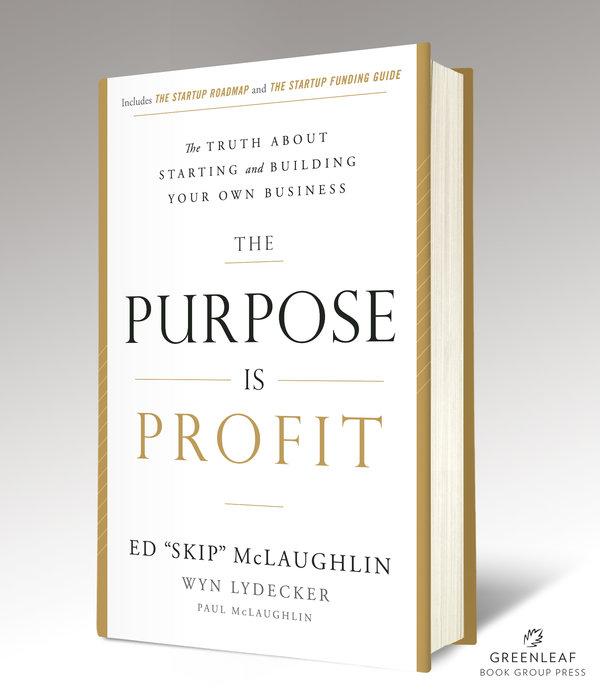by Omar Douglass
Contributing Writer for The Purpose is Profit Blog
As startup advisor and self-styled “Growth Hacker,” Paul O’Brien, wrote, “Entrepreneurs everywhere are trying to understand not just how to connect, network, and collaborate, but how to develop relationships with the right investors. Incubators, accelerators, and coworking spaces are the place to start.” These relatively new kinds of workspaces and startup support systems have been growing for the past 10 to 15 years. But confusion abounds as to the difference between them. So just what are incubators, accelerators, and coworking spaces?
Incubators
Incubators provide startups with workspace and business development services – including accounting, branding, and intellectual property training – in a rent-based model offered to young ventures in a custom package. Most often investing capital in young companies in exchange for a small (5% – 15%) equity stake, incubators charge low to no up-front cost for utilizing the workspace and the organization’s cultivated resources such as mentors and networks of investors in the startup’s industry. An example of an innovative new incubator is the art, design and technology-focused New Inc in New York City. Sponsored by the New Museum and housed in a building next door with 11,000 square feet of dedicated workspace, the non-profit incubator provides the resident artist-entrepreneurs more room to explore.
Accelerators
Accelerators are structured more like “schools for startups,” according to a recent article in The Economist. Complete with graduation ceremonies, accelerators are more organization than shared work environment. Once accepted into the accelerator’s time structured program (often three to four months), startups with a developed product or record of service receive access to workspace, small amounts of seed-capital, mentorship, and formal networking opportunities. Despite the success of accelerator graduates like Airbnb, Reddit and DropBox, and the recognition of accelerators such as Y-Combinator and TechStars, the business sense of running an accelerator remains in question. So why do so many VCs and Angels get into these things? As The Economist explained it:
“For many
Coworking Spaces
Coworking space is more a style of work than a structured environment or educational program. Often decidedly holistic, coworking spaces cultivate supportive and life-balanced work environments, while providing a fertile, collaborative environment for young companies to form and formulate ideas. With more peer-to-peer mentorship and greater access to talented entrepreneurs, the thinking is that early-stage startups can get ahead on launching a product and earning a profit by starting out in a coworking space.
Often beautifully designed open spaces with plenty of natural light or with floor plans that emphasize community, the some of the best coworking spaces seem to reside within accelerators and incubators. While they tend to look the same, the three can be distinguished by the connection to investment and the needs of the participating startups. If you are considering one of these options, you should first determine what stage of growth your startup is in. Decide to take a focused, yet flexible, look at what you have to offer in terms of competitive advantage within your industry. Then seek out collaborative networks you can tap into to learn more about incubators, accelerators, and coworking spaces near you.
In my next post, we will dig deeper into the inner workings of some established organizations themselves. Have you participated in an accelerator or incubator? Is your startup housed in a collaborative workspace? Share your experience in the comments.
Ed McLaughlin is the author of The Purpose Is Profit: The Truth about Starting and Building Your Own Business, along with co-authors Wyn Lydecker and Paul McLaughlin. The Purpose Is Profit (Greenleaf Book Group) is available in bookstores now.

Order The Purpose Is Profit here.
Copyright © 2016 by Ed McLaughlin All rights reserved.





I would be interested in hearing more of your thoughts on the collaborative networking that results from the synergy created by Coworking Spaces.
Hi Mary Jo!
Thanks for the feedback! I will actually be addressing the synergy created by coworking and, generally, the trend toward working in similar collaborative environments in my next post, so please stay tuned!
Finally someone has written an informed and concise explanation of the difference between Incubators, Accelerators and Coworking spaces!
Thanks for your comment. We are so glad this is useful information.
[…] taking advantage of the shared workplace model is Green Labs in Denver. Green Labs operates as a coworking space, which means they rent out work space to various freelancers and startups; the idea being that the […]
[…] bringing people back to the office. For every small company touting the benefits of working elbow to elbow in an incubator space, someone else is advocating for hiring the best, no matter where he or she is. What’s a […]